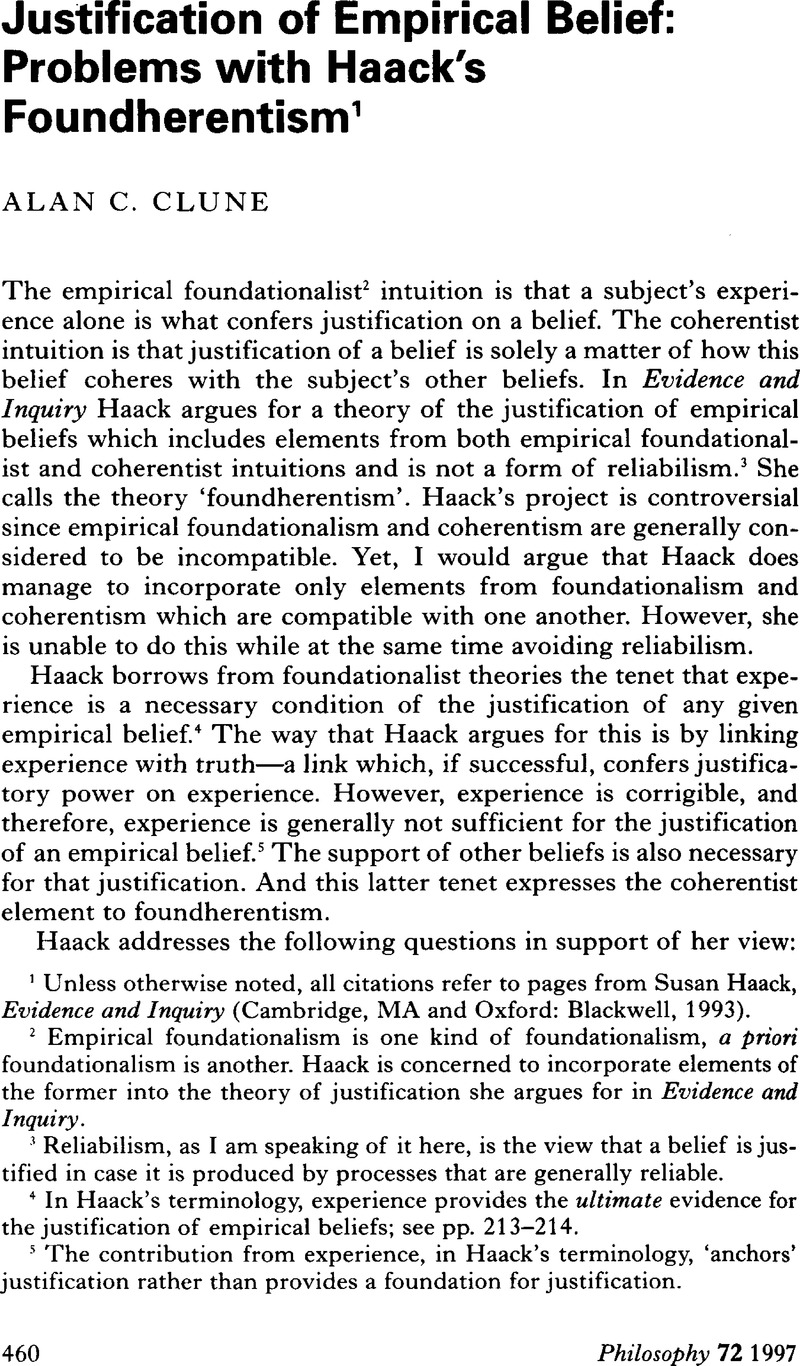Article contents
Justification of Empirical Belief: Problems with Haack's Foundherentism
Published online by Cambridge University Press: 30 January 2009
Abstract

- Type
- Discussion
- Information
- Copyright
- Copyright © The Royal Institute of Philosophy 1997
References
1 Unless otherwise noted, all citations refer to pages from Susan, Haack, Evidence and Inquiry (Cambridge, MA and Oxford: Blackwell, 1993).Google Scholar
3 Reliabilism, as I am speaking of it here, is the view that a belief is justified in case it is produced by processes that are generally reliable.
4 In Haack's terminology, experience provides the ultimate evidence for the justification of empirical beliefs; see pp. 213-214.Google Scholar
5 The contribution from experience, in Haack's terminology, ‘anchors’ justification rather than provides a foundation for justification.
6 Haack. p. 43.
7 Haack. p. 43.
8 Haack. pp. 213 and 214.
9 Haack. p. 218.
10 Ibid..
11 Haack. pp. 218-220.
12 This qualification avoids a recurrence of the problem we are trying to resolve.
13 Haack. p. 212.
- 1
- Cited by


